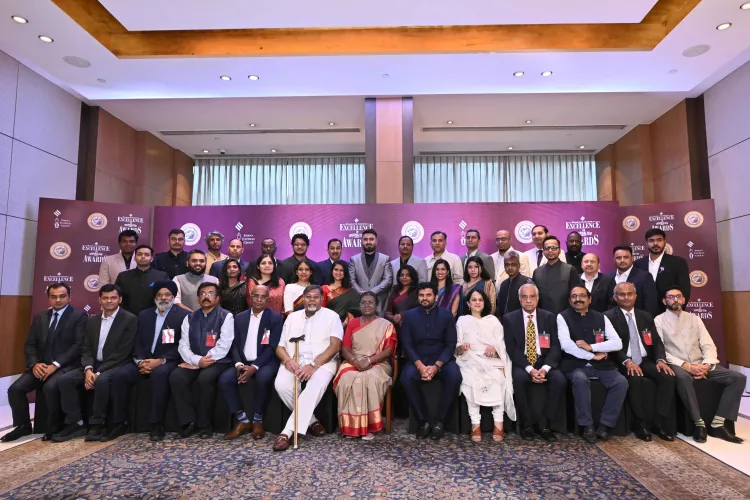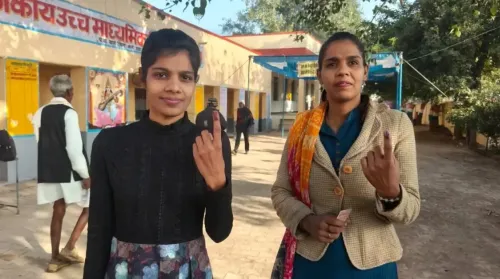Empathy Empowers Journalists Against AI: President Murmu at Ramnath Goenka Awards

Synopsis
Key Takeaways
- Empathy is essential for journalists to surpass AI.
- Free and fair journalism is vital for democracy.
- Vibrant newsrooms foster creativity and idea exchange.
- Journalism must focus on ground reporting.
- Public awareness of AI's dangers is crucial.
New Delhi, March 19 (NationPress) President Droupadi Murmu emphasized on Wednesday that while artificial intelligence is transforming the world with its myriad opportunities and challenges, it is also making its mark in the media sector; however, it can never supplant journalism rooted in human values.
“Machines have begun to compile and edit news stories. It may not be long before they handle the majority of journalistic tasks. Yet, what they fundamentally lack is empathy, which will prove crucial for journalists to outshine AI. Journalism that is anchored in human values is here to stay,” the President remarked during the 19th Ramnath Goenka Excellence in Journalism Awards presentation.
Highlighting the critical role of free and impartial journalism in a democracy, she stated that when citizens are inadequately informed, the essence of democratic processes is compromised.
The President asserted that a vibrant newsroom brimming with ideas is vital for the news industry, while also underscoring the necessity of a research department to uphold quality and precision. She cited the Indian Express, the flagship publication of the late Ramnath Goenka's media group, as a model in this respect.
She stressed the need to fortify the essence of journalism during news collection, urging media outlets to allocate more resources to foster a culture of on-ground reporting.
Addressing the evolving business models in media, the President indicated that previously, newspapers and magazines focused on delivering qualitative reporting and analysis, which subsequently boosted sales, thereby creating a favorable environment for advertisers who helped subsidize costs. Recently, however, this has been supplanted by various hybrid models.
Moreover, she pointed out the dangers posed by deepfakes and other potential abuses of artificial intelligence, stressing the importance of raising awareness among all citizens, particularly the youth.
President Murmu acknowledged that the awards, which celebrate and recognize excellence in journalism, also pay tribute to the legacy of Ramnath Goenka, esteemed founder of the Indian Express group and a remarkable figure in Indian media.
“He championed the freedom of the press both before and after Independence. His newspaper stood firm during the Emergency, and the blank editorial it published became a powerful emblem of a free press and a beacon of hope for the restoration of democratic rights. Goenka-ji's courage was informed by the values he absorbed from our freedom struggle,” she added.
“For Goenka-ji, the notion of service transcended journalism. His connection with the Father of the Nation extended to various other pursuits as well,” the President concluded.
Established by the Ramnath Goenka Foundation, these awards have been recognizing outstanding journalism since 2006, with 20 notable contributions across 13 categories, including investigative journalism, sports, politics, government, books, features, and regional languages.









